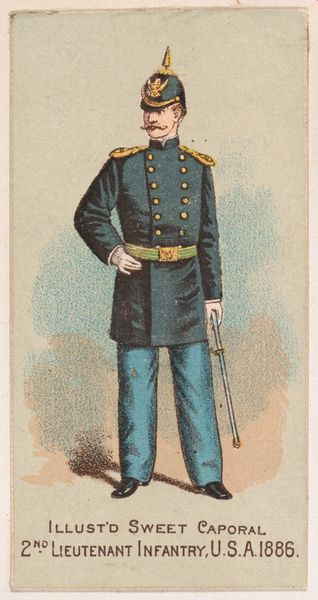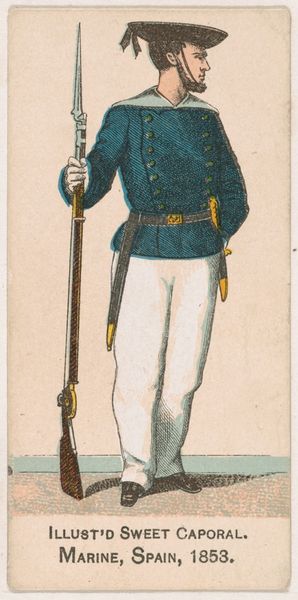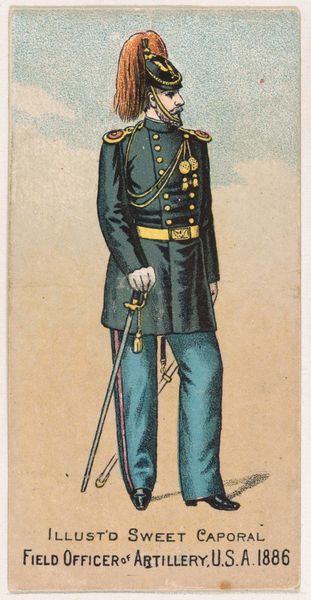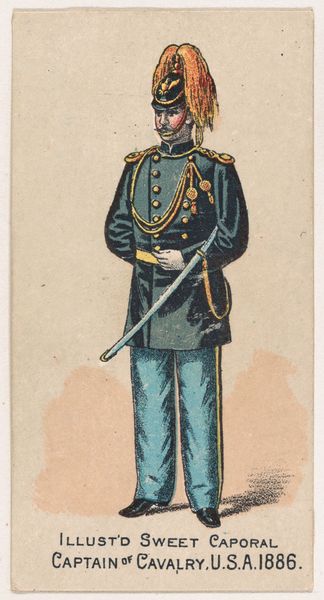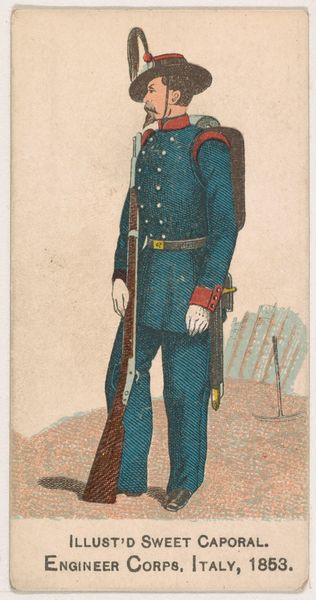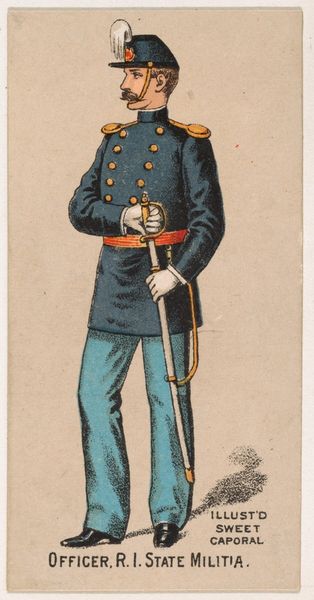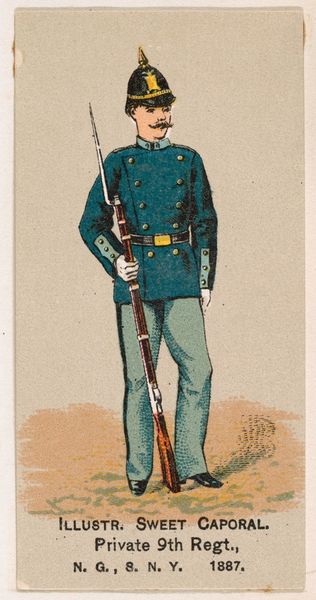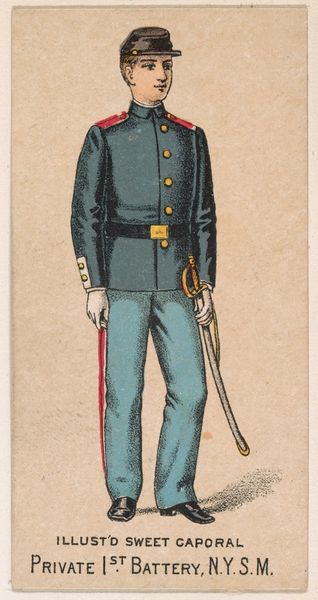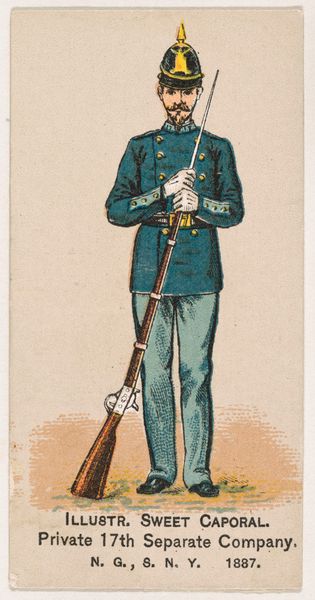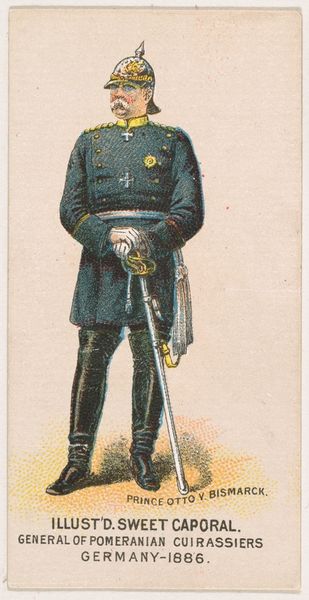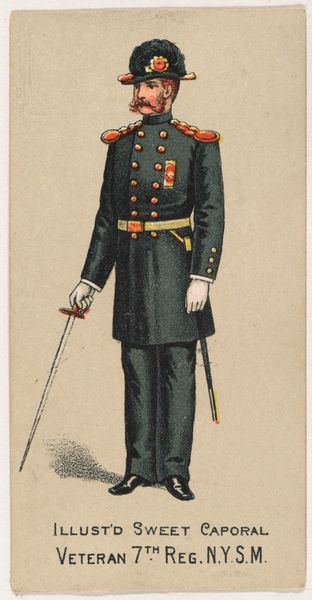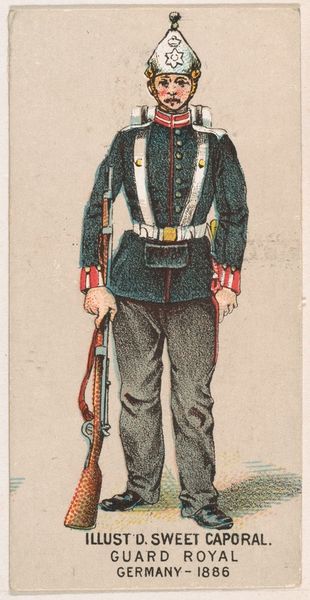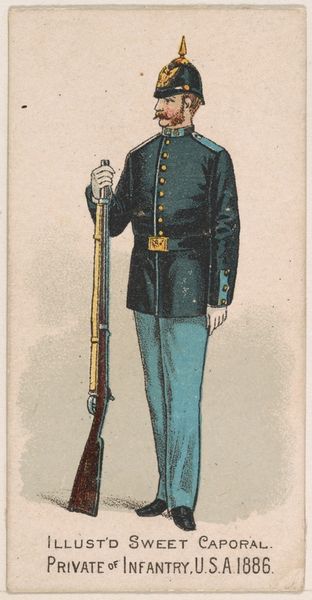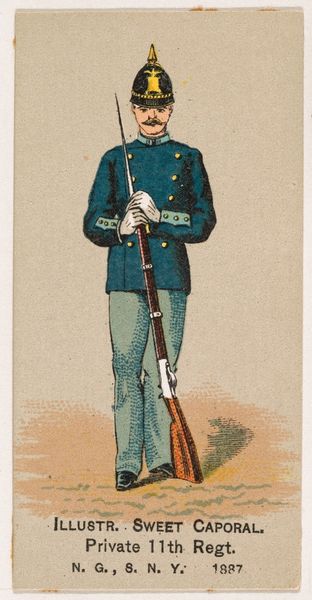
Marine, Austria, 1853, from the Military Series (N224) issued by Kinney Tobacco Company to promote Sweet Caporal Cigarettes 1888
0:00
0:00
drawing, print
#
portrait
#
drawing
# print
#
men
#
watercolour illustration
#
academic-art
#
realism
Dimensions: Sheet: 2 3/4 × 1 1/2 in. (7 × 3.8 cm)
Copyright: Public Domain
Editor: Here we have "Marine, Austria, 1853," a print from 1888, part of the Military Series promoting Sweet Caporal Cigarettes. There's something stark and a little unsettling about the figure’s stiff pose. What stands out to you from a formal perspective? Curator: Note the precision of line and clarity of form. The composition is dominated by a rigid verticality, from the bayonet to the soldier's posture. This emphasis underscores a kind of stoicism. Editor: It’s almost like the figure is presented as a collection of shapes, the hat, the coat. Curator: Indeed. Consider how the colour palette further articulates these forms. The teal uniform, punctuated by the ochre of the buttons and straps, creates a visual rhythm. Ask yourself how the limited tonal range influences your reading of the subject. Editor: It seems almost hyper-realistic, or staged. I keep noticing that everything has hard edges, from the buttons to the bayonet. Is it intended to emphasize the uniform as much as the soldier? Curator: The image certainly operates on that premise. Look at how the uniform nearly dwarfs the figure's head. The success is less about representation and more about communicating a certain notion of militaristic order through its graphic design. A semiotic code for nationhood perhaps? Editor: That's a perspective I hadn't fully considered, viewing the uniform as the primary signifier, rather than the soldier. I guess I’ve learned that form isn’t just about appearance but about communication too. Curator: Precisely. The artist’s deliberate choices regarding form and color, dictate our interaction with, and interpretation of, the piece.
Comments
No comments
Be the first to comment and join the conversation on the ultimate creative platform.
